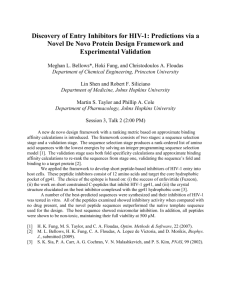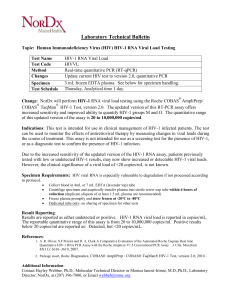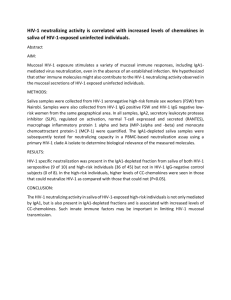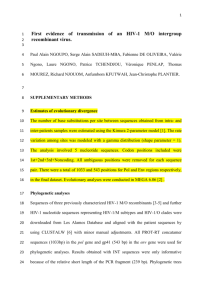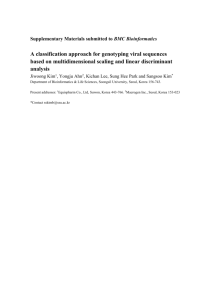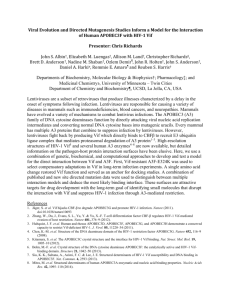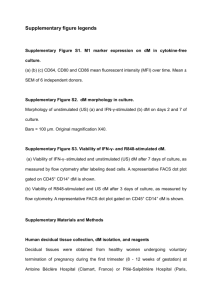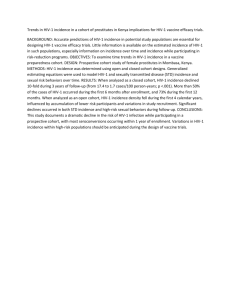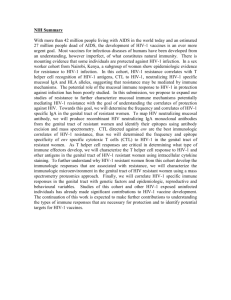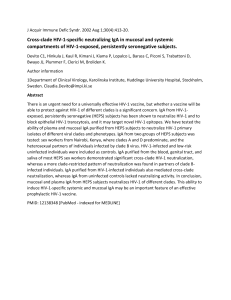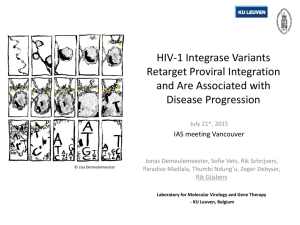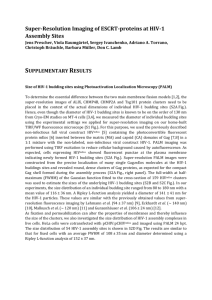Supplemental Digital Content Methods. SDC 1. Serological and
advertisement
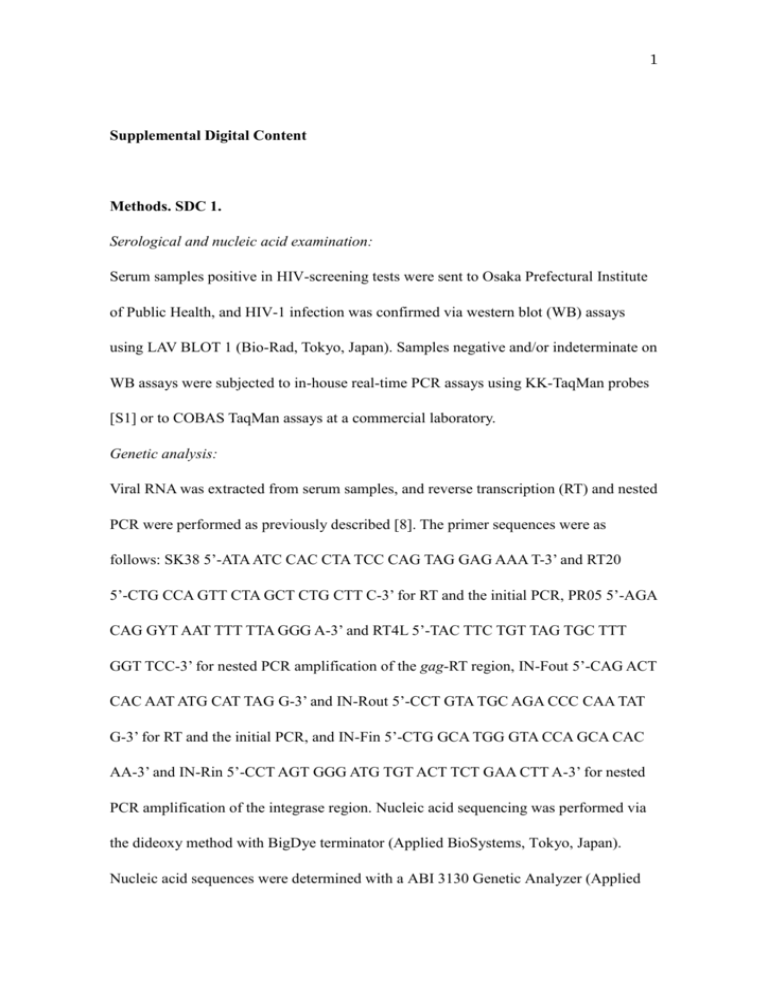
1 Supplemental Digital Content Methods. SDC 1. Serological and nucleic acid examination: Serum samples positive in HIV-screening tests were sent to Osaka Prefectural Institute of Public Health, and HIV-1 infection was confirmed via western blot (WB) assays using LAV BLOT 1 (Bio-Rad, Tokyo, Japan). Samples negative and/or indeterminate on WB assays were subjected to in-house real-time PCR assays using KK-TaqMan probes [S1] or to COBAS TaqMan assays at a commercial laboratory. Genetic analysis: Viral RNA was extracted from serum samples, and reverse transcription (RT) and nested PCR were performed as previously described [8]. The primer sequences were as follows: SK38 5’-ATA ATC CAC CTA TCC CAG TAG GAG AAA T-3’ and RT20 5’-CTG CCA GTT CTA GCT CTG CTT C-3’ for RT and the initial PCR, PR05 5’-AGA CAG GYT AAT TTT TTA GGG A-3’ and RT4L 5’-TAC TTC TGT TAG TGC TTT GGT TCC-3’ for nested PCR amplification of the gag-RT region, IN-Fout 5’-CAG ACT CAC AAT ATG CAT TAG G-3’ and IN-Rout 5’-CCT GTA TGC AGA CCC CAA TAT G-3’ for RT and the initial PCR, and IN-Fin 5’-CTG GCA TGG GTA CCA GCA CAC AA-3’ and IN-Rin 5’-CCT AGT GGG ATG TGT ACT TCT GAA CTT A-3’ for nested PCR amplification of the integrase region. Nucleic acid sequencing was performed via the dideoxy method with BigDye terminator (Applied BioSystems, Tokyo, Japan). Nucleic acid sequences were determined with a ABI 3130 Genetic Analyzer (Applied 2 BioSystems) via direct sequencing. The nucleic acid and amino acid sequences were compared with those of the reference strain HXB2 (accession No. K03455). A phylogenetic tree was constructed using the neighbor-joining method in MEGA 5 software [S2]. Nucleotide sequence accession numbers: The novel HIV-1 p6 and integrase sequences are available in GenBank under the following accession numbers: LC033998-LC034020; LC033853-LC033869; AB870487; AB870497; AB870499; AB870503; AB870516; AB870509; AB870512; AB870525 References [S1] Kondo M, Tanaka R, Sudo K, Sano T, Tachikawa N, Sagara H, et al. The development of quantitative HIV-1 RNA assay using general real time PCR machines. AIDS 2010 - XVIII International AIDS Conference: Abstract no. MOPE0090 [S2] Tamura K, Peterson D, Peterson N, Stecher G, Nei M, Kumar S. MEGA5: molecular evolutionary genetics analysis using maximum likelihood, evolutionary distance, and maximum parsimony methods. Molecular Biology and Evolution 2011; 28: 2731-2739. 3 Figure. SDC 2. Phylogenetic analysis of the HIV-1 integrase sequences obtained during 2008 – 2014 in the regional surveillance in Osaka, Japan (n = 646). The novel HIV-1 variants form a distinct cluster in this phylogenetic tree (■). HIV-1 isolates carrying an integrase mutation identical to that in the novel HIV-1 variants are indicated by red (●). Three red isolates, which are separate (lower left) from the major cluster, are of non-B subtypes. Asterisks (*) indicate HIV-1 detected in patients with primary HIV-1 infection defined as negative or indeterminate on WB, but positive for HIV-1 RNA.
